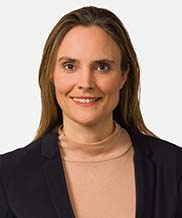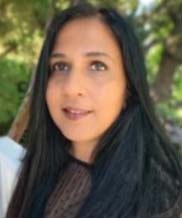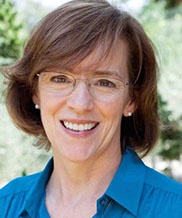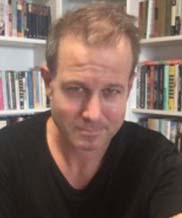Flying Without Co-pilots: Opportunities to Bridge Gaps in the Support Ecosystem for Children with Autism – Session 3
Three Day Workshop, 3:00pm-5:00pm (Pacific)
January 12th, Building Together: At Home and in the Community
January 19th, Growing Together: Training and Professional Development
January 26th, Informing Each Other: Information, Data, and Processes
How might we conceptualize an ecosystem of support for children with special needs (ASD in particular) in order to make changes that will result in closing the gaps of a broken ecosystem?
Children with special needs benefit from assistance and support from a variety of people, including teachers, aides, behavior technicians, occupational therapists, and most especially, their parents or immediate caregivers. Providing learning opportunities to a child with special needs requires an ecosystem of support, with each participant understanding the interactions and goals of their counterparts and serving as agents for the whole child. In many cases, the phrase “it takes a village to raise a child” resounds with greater emphasis for individuals with special needs.
Unfortunately, the current system places service providers in silos with little cross communication. Inside this ecosystem, organizations and professionals might have the best intentions, yet not receive the cooperation needed to make their work successful. In addition, these various service providers and groups often have incentives that do not align. It generally falls to parents and caregivers to manage communication between the parties, while simultaneously caring for their child. To respond to the challenges of the current system, a variety of approaches are underway – from new technologies that reach children in their homes to recommendations for new special education policies, to an infrastructure of training and professional development. A key element we want to explore is how infrastructure and interaction might be improved to enable better communication and cooperation with other support personnel. One area for impact is the training and certification of professionals who are working in this field of special needs support, particularly for those with autism.
To understand how we might better shape the capabilities and mindset of these individuals, and to create a more effective ecosystem, mediaX is inviting exploration into the requirements necessary to re-envision training and professional development for teachers and medical professionals working with children with special needs. What infrastructure could be envisioned to promote collaboration and communication between and among support personnel? Through perspectives on the current situation and the identification of how and where progress is being made, discussions will encourage the development of recommendations for ways in which Stanford University and collaborators might positively impact future interactions within the care ecosystem.
This workshop series will address this question:
How we might better shape the capabilities and mindsets of professionals who work in fields of autism and special needs support – teachers, medical professionals and other care givers working with children with special needs.
We hope to shine a spotlight on inflection points for the enhanced effectiveness of this ecosystem.
Using insights shared by thought leaders and perspectives brought by participants we’ll discuss and brainstorm starting points, potential roadblocks, and pathways to solutions.
In our third of three sessions:
We will explore opportunities and barriers for more seamless sharing of information and processes between players in the ecosystem, thereby enhancing opportunities for holistic care.
Presenters

Lilyan W.J. Campbell is a specialist in parent training and has developed many ABA (Applied Behavior Analysis) parent training tools over the past 20 years. Lilyan is a BCBA and a licensed Psychotherapist. She is one of the authors of ‘Essential ABA skills for parents, a handbook for parent training’, which is used to educate parents across the globe. Lilyan collaborated and partnered with LuxAI in Luxembourg, and developed a social skills curriculum for robot QT. This robot assists teaching children across the world social skills.
Lilyan is co-founder of ABA Works (California); ABA Center International (Amsterdam); and ABA Courses (Nevada). She is the first BCBA in the Netherlands who successfully combined ABA treatment and education, with learners diagnosed with Autism. With her continued interest in education, she has developed coursework for the RBT (Registered Behavior Training) in multiple languages and she is co-author on a poster presented during an international conference ABAI in Chicago (“Efficacy of visual supports to increase treatment integrity of parents’ implementation of non-contingent attention in non-native English-speaking families).

Lakshmi Balasubramanian is a Lecturer and Researcher in the field of special education at the Stanford Graduate School of Education. She completed her Ph.D. in Special Education at the joint doctoral program at the University of California, Berkeley with San Francisco State University in May 2021. Her dissertation research examined the processes and practices of inclusive education for students with diverse disabilities in a school district in Northern California. The first part of the dissertation is a theoretical articulation of a conceptual framework that school districts and local education agencies can use to design, implement, and sustain inclusive educational practices.
The second part of this dissertation consists of an empirical study that evaluated the deployment of this framework in implementing inclusive education in the kindergarten-through-12th-grade context. It brought under scrutiny the system-level processes and programmatic structures that were in place or being developed at this school district. Facilitators and barriers to inclusion were examined as they related to access, meaningful participation, and creation and provision of supports for all participants within their sociocultural context.

Marsali Hancock is the CEO of EP3 Foundation, a neutral nonprofit that unlocks data silos allowing access to data needed while protecting sensitive, personal health information and confidentiality. She also serves as a commissioner for the Global Information Infrastructure Commission, the oldest internet policy organization where she works with nation-state leaders to build robust communication networks companioned with proactive online safety and security initiatives.
Previously, Marsali developed the first Federal Trade Commission (FTC) approved COPPA safe harbor providing state and federal education law certifications. Marsali is also deeply involved nationally and internationally in measuring and defining positive digital cultures, responsible regulatory frameworks, data privacy, data compliance, and effective education initiatives that both empower and protect consumers.

Trevor Clark is the SVP of Growth at Elemy, the first managed marketplace for in-home chronic medical care, starting with pediatric autism. Prior to Elemy, Trevor led commercial teams at 3 other mission-driven venture-backed companies, all of which reached unicorn status. He is unequivocally a Black Lives Matter and Equal Pay advocate. Outside of Elemy, Trevor is interested in contemporary literature, running (slowly) on a Peloton, performing improv, and losing at Connect 4 to his two kids.